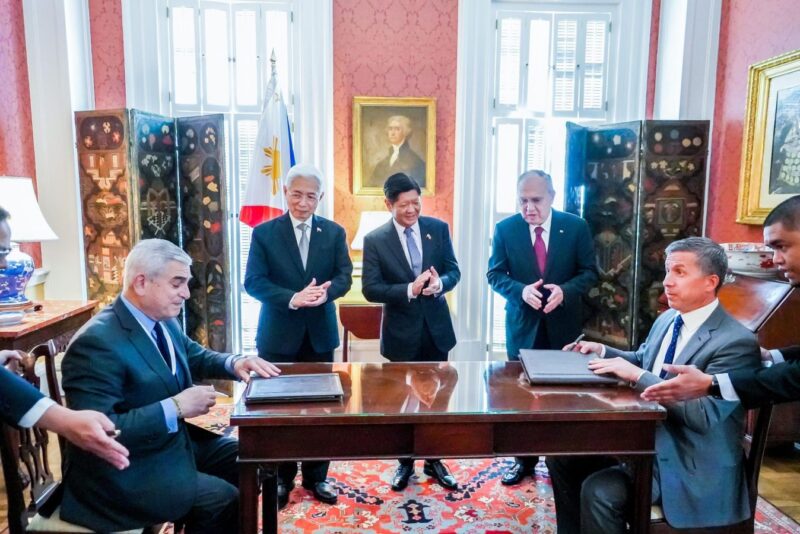-
The Bureau of Internal Revenue has clarified guidelines on availing VAT zero rating/exemption of incentives by registered business enterprises
-
BIR Revenue Regulations 3-2023 also makes the certification issued by the concerned investment promotion agency as the basis for availing of the VAT zero rating incentive
-
Six services have been identified as ineligible for VAT zero rating
-
Philippine Economic Zone Authority welcomed the revised regulation, saying it will encourage registered business enterprises to source locally
The Bureau of Internal Revenue (BIR) has clarified guidelines on availing VAT zero rating/exemption of incentives by registered business enterprises, a move welcomed by the Philippine Economic Zone Authority (PEZA).
BIR Revenue Regulations (RR) No. 3-2023, dated April 20 but issued April 25, also effectively makes the certification issued by the concerned investment promotion agency (IPA) as the basis for availing of the VAT zero rating incentive. The BIR may, however, still conduct a post-audit investigation to verify if the purchases were indeed directly and exclusively used by the registered export enterprise in its registered project or activity.
IPAs include the Board of Investment, PEZA, Bases Conversion and Development Authority, Subic Bay Metropolitan Authority and Clark Development Corp, and other agencies created to promote investments and administer tax/non-tax incentives and/or overseeing operations of economic and Freeport zones.
Upon effectivity of RR No. 3-2023, local suppliers of goods of registered export enterprise will no longer be required to apply for approval of VAT zero-rating with the BIR. This means registered business enterprises (RBEs) are now spared from the VAT refund process.
The regulations take effect upon publication in a newspaper of general circulation or the Official Gazette.
RR 3-2023 likewise identified a negative list of six services ineligible for VAT zero-rating because they are not “directly and exclusively used” in the registered project or activity of a registered export enterprise. These are:
- janitorial services
- security services
- financial services
- consultancy services
- marketing and promotion
- services rendered for administrative operations such as human resources, legal, and accounting
Still the registered export enterprise may prove, with supporting evidence, to the concerned IPA that any of the local purchase of goods relating to the six listed services is directly and exclusively used in its registered project or activity.
Health maintenance organization plans acquired by the registered export enterprise for its employees directly and exclusively involved in the operations of their registered projects or activities and forming part of their compensation package are considered as “directly and exclusively used” in the registered project or activity of a registered export enterprise, according to RR No. 3-2023.
RELATED READ: BIR clarifies ecozone logistics service enterprises entitled to zero VAT
PEZA director general Tereso Panga, in a Facebook post, welcomed the new BIR regulation, saying it streamlines and clarifies guidelines on availing VAT zero rating/exemption of incentives by registered business enterprises.
Panga said the role of IPAs in investment facilitation and exercise of regulatory functions over RBEs will also be strengthened with IPA certification now the basis for availing of the VAT zero rating incentive.
“As the RBEs are now spared from the VAT refund process, it will benefit as well their local suppliers who are no longer required to apply with the BIR for the VAT zero rating of their transactions,” he added.
As for the negative list, which limits to six cost items VATable goods and services to be imposed on RBEs, Panga said its positive consequence is that “RBEs will be encouraged to source more from the local market (instead of importing from abroad) to sustain their operations, given the wider coverage of allowable goods and services for VAT zero rating.”
“We will continue to collaborate with our partner agencies and industries as we try to restore the incentives for support to export activities and address the remaining industry issues on cost allocation for VATable administrative expenses, conduct of BIR audit, IPAs’ approving authority for projects and policy-making powers, flexi-work scheme for ecozone locators, and protection for existing RBEs pursuant to the sunset provision of the CREATE (Corporate Recovery and Tax Incentives for Enterprises Act) law,” Panga said.
Meanwhile, in issuing the VAT zero-rating certification, the concerned IPA should be guided by the rule that such local purchases of goods are directly attributable to the registered project or activity without which such registered project or activity cannot be carried out, according to RR 3-2023.
These are costs indispensable to the project or activity, i.e., without which the project or activity cannot proceed, including expenses necessary or required depending on the nature of the registered project or activity of the export enterprise.
If the purchased goods are used in both the registered project or activity and administrative operations, the registered export enterprise should adopt a method to best allocate the same. If a proper allocation could not be determined, the purchase of such goods will be subject to 12% VAT.
All applications with VAT zero-rating certification issued by the concerned IPA received but not yet acted upon by the concerned office of the BIR upon effectivity of RR No. 3-2023 will receive VAT zero-rating treatment from the date of filing of such application.
RELATED READ: BIR ruling retains zero VAT on exporters’ local purchases for 17 years
RR No. 3-2023 amends certain provisions of RR No. 16-2005, as amended by RR No. 21-2021, to implement Sections 294 (E) and 295 (D), Title XIII of the National Internal Revenue Code of 1997, as amended by Republic Act (RA) No. 11534 (Corporate Recovery and Tax Incentives for Enterprise Act or CREATE Act) and Section 5, Rule 2 and Section 5, Rule 18 of its implementing rules and regulations, as amended. – Roumina Pablo









